Today Current Affairs: 30th March 2022 for UPSC IAS exams, State PSC exams, SSC CGL, State SSC, RRB, Railways, Banking Exam & IBPS, etc
Table of Contents
Ghar Ghar Ration Yojna : Punjab Government

The new scheme was announced by the Punjab Government recently.
Highlights of the new Scheme:
- It provides for home delivery of foodgrains to beneficiaries.
- The government gives 5 kg wheat to every individual beneficiary per month at Rs 2 per kg.
- The Centre will fund the scheme under the National Food Security Act (NFSA) 2013 for 1.43 lakh beneficiaries (comprising 36 lakh families).
- The beneficiaries of the Atta-Dal Scheme of the state government, which is a tweaked version of the Centre’s Food Security Act, will get ration at their doorsteps.
- The scheme will be optional and all those who do not want to queue up outside the fair price shops or the ration depots can opt for it.
- There are 1.54 crore individual beneficiaries (in 43 lakh families) of the Atta-Dal scheme in Punjab.
Removal Of 1921 Malabar Rebellion Martyrs From The List Of India’s Freedom Fighters:
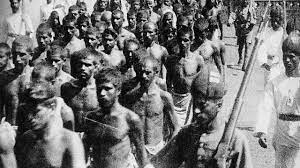
The Indian Council for Historical Research (ICHR) has deferred its decision on a recommendation to remove the 1921 Malabar Rebellion martyrs, including Variamkunnaathu Kunhahamad Haji and Ali Musliyar, from the list of India’s freedom fighters.
- The panel was of the view that the rebellion that took place at Malabar was a one-sided attack on Hindus. Just two Britishers were killed during the unrest and hence the rebellion could not be considered as part of the freedom struggle.
- The subcommittee had recommended the removal of the Malabar Rebellion leaders, mostly Muslims, from the list. This is viewed by some as an attempt to distort history.
- The Mapilla rebellion or Moplah Rebellion (Moplah Riots) of 1921 was the culmination of a series of riots by Moplahs (Muslims of Malabar) in the 19th and early 20th centuries against the British and the Hindu landlords in Malabar (Northern Kerala).
- The year 2021 will mark the 100th year anniversary of the uprising.
- The resistance which started against the British colonial rule and the feudal system later ended in communal violence between Hindus and Muslims.
- Gandhiji along with Shaukat Ali, the leader of the Khilafat movement in India, visited Calicut in August 1920 to spread the combined message of non-cooperation and Khilafat among the residents of Malabar.
- In response to Gandhiji’s call, a Khilafat committee was formed in Malabar and the Mappilas, under their religious head Mahadum Tangal of Ponnani who pledged support to the non-cooperation movement.
- Most of tenants’ grievances were related to the security of tenure, high rents, renewal fees and other unfair exactions of the landlords.
- The British government responded with much aggression, bringing in Gurkha regiments to suppress it and imposing martial law.
What Are Articulated All Terrain Vehicles?
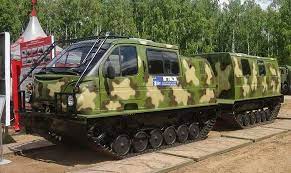
The Indian Army has issued a Request For Information (RFI) for the supply of Articulated All-Terrain Vehicles to be deployed in Ladakh and Kutch.
- An RFI is a formal process for gathering information from potential suppliers of a good or service.
- Articulated All Terrain Vehicles is a twin cabin, tracked, amphibious carrier for off road mobility.
- The special design of this equipment exerts low ground pressure on the soil and a pull-push mode of locomotion between two cabins facilitates mobility over varied terrains like snow, desert and slush.
- A ballistic protection in the cabin body ensures protection to troops travelling in it from small arms fire.
- They can reach where wheeled vehicles cannot due to deep snow, slush or marshy terrain and can be very effective for patrolling and rapid deployment in operational situation
- These vehicles are very useful to move troops or supplies in snow-bound terrains and in marshy/sandy environments.
- The Indian Army wishes to use these vehicles in the snow-bound areas of Ladakh and in the marshy terrain of the Rann of Kutch.
TEJAS Skilling Project:

TEJAS (Training for Emirates Jobs And Skills), a Skill India International Project to train overseas Indias was launched at the Dubai Expo, 2020.
Aim of the Project:
- Skilling, certification and overseas employment of Indians.
- Creating pathways to enable the Indian workforce to get equipped for skill and market requirements in the UAE.
- Creating a 10,000 strong Indian workforce in UAE during the initial phase.
The youth are the largest stakeholder in both nation building and image building.
- The focus is to skill this population and provide the world with a large skilled workforce from India.
India’s unemployment rate reached an all-time high in 2020. - India’s unemployment rate touched a 7.9% in December 2021.
- There were several factors responsible for this, including the coronavirus pandemic-induced lockdown.
- According to the World Economic Forum report released in January 2021, investment in upskilling could potentially boost the global economy by USD6.5 trillion by 2030, and India’s economy by USD570 billion.
- India had the second-highest additional employment potential through upskilling as it could add 2.3 million jobs by 2030, second only to the US’s 2.7 million jobs.
- According to the UNDP’s Human Development Report-2020, only 21.1%of the labour force was skilled in the period 2010-2019 in India.
- This dismal result is due to lack of cohesion within policy actions, absence of holistic approach and working in silos.
What Are Animal Disease-Free Zones?
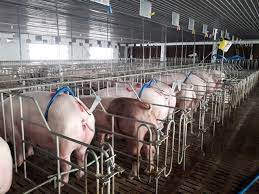
In order to boost exports of value-added meat products, the Government of India has called on stakeholders to work towards the creation of region-specific animal disease-free zones in the country.
- Animal Disease-free zone means a clearly defined part of a territory containing an animal subpopulation with a distinct health status with respect to a specific disease for which required surveillance, control and biosecurity measures have been applied for the purpose of international trade.
- Animals are the life support system for our rural economy, they provide sustenance in difficult times and are a great source of nutrition, particularly proteins for the rural folk.
- Animal Husbandry comes under the mixed farming practices.
- Mixed Farming is an agricultural system in which a farmer conducts different agricultural practices together, such as cultivating cash crops and rearing livestock.
- The aim is to increase income through different sources and to complement land and labour demands across the year.
- India is the largest exporter of frozen and bovine meat while achieving significant growth in the export of organic honey and fish produce.
- According to the World Organisation for Animal Health (OIE), zoning is a risk management strategy for achieving the progressive control and eradication of animal diseases, and for providing guarantees for international trade.
Criminal Procedure (Identification) Bill, 2022:

The Criminal Procedure (Identification) Bill, 2022 was introduced in Lok Sabha
- It would allow the police and prison authorities to collect, store and analyse physical and biological samples, including retina and iris scans.
- Resistance to or refusal to allow the taking of measurements under this Act shall be deemed to be an offence under section 186 of the Indian Penal Code.
- It will also seek to apply these provisions to persons held under any preventive detention law.
- It also authorises for taking measurements of convicts and “other persons” for identification and investigation in criminal matters.
- It doesn’t define the “other persons” implying its ambit beyond convicts, arrested persons, or detainees.
- Police personnel up to the rank of Head Constable have been authorised to record the measurements.
- The National Crime Records Bureau (NCRB) will be the repository of physical and biological samples, signature and handwriting data that can be preserved for at least 75 years.
- NCRB has also been empowered to share the records with any other law enforcement agency.
Significance of the Bill:
- The bill makes provisions for the use of modern techniques to capture and record appropriate body measurements.
- The existing law — the Identification of Prisoners Act — dated back to 1920 and allowed taking only fingerprint and footprint impressions of a limited category of convicted persons.
- The Bill seeks to expand the ‘‘ambit of persons’’ whose measurements can be taken as this will help the investigating agencies to gather sufficient legally admissible evidence and establish the crime of the accused person.
- The bill provides legal sanction for taking appropriate body measurements of persons who are required to give such measurements and will make the investigation of crime more efficient and expeditious and will also help in increasing the conviction rate.
Microplastics In human blood:

A study by researchers from The Netherlands found the presence of Microplastics in human blood.
- Microplastics are tiny bits of various types of plastic found in the environment.
- The name is used to differentiate them from “macroplastics” such as bottles and bags made of plastic.
- There is no universal agreement on the size that fits this bill — the U.S. NOAA (National Oceanic and Atmospheric Administration) and the European Chemical Agency define microplastic as less than 5mm in length.
- However, for the purposes of this study, since the authors were interested in measuring the quantities of plastic that can cross the membranes and diffuse into the body via the blood stream, the authors have an upper limit on the size of the particles as 0.0007 millimetre.
- The study looked at the most commonly used plastic polymers.
- These were polyethylene tetraphthalate (PET), polyethylene (used in making plastic carry bags), polymers of styrene (used in food packaging), poly (methyl methylacrylate) and poly propylene. They found a presence of the first four types.
Rashtriya Sanskriti Mahotsav 2022:
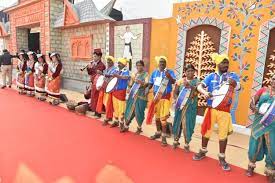
The 2022 Rashtriya Sanskriti Mahotsav (RSM) was inaugurated under the Azadi ka Amrit Mahotsav in the Arts College Ground, Rajamahendravaram, Andhra Pradesh by Biswabhusan Harichandan, the Governor of Andhra Pradesh. G. K Reddy, Union Minister for Culture, Tourism, and DoNER was also part of this launch event.
- The two-day Mahotsav was conducted on 26th and 27th March 2022.
- In 2015, the first Rashtriya Sanskriti Mahotsav was held.
- After the first Mahotsav held in 2015 received a positive response from the general public and the media, the organization of this festival on a regular basis was started.
- The RSM-2022’s second leg will be inaugurated on 29th March in Warangal.
- The second leg will be inaugurated by the Telangana governor, Tamilisai Soundararajan.
- From 1st to 3rd April, this Mahotsav’s third leg will be held in Hyderabad.
Oscar Awards 2022:

The Oscars 2022 or the 94th Academy Awards ceremony which is presented by the Academy of Motion Picture Arts and Sciences (AMPAS). This event was held on 27th March 2022 at the Dolby Theatre in Los Angeles
- The hosts for this ceremony were Amy Schumer, Regina Hall, and Wanda Sykes.
- For the first time since the 83rd Academy Awards held in 2011 that multiple hosts were featured.
- Best Picture: CODA
- Best Actress: Jessica Chastain for the movie The Eyes Of Tammy Faye
- Best Director was won by Jane Campion for The Power Of The Dog.
- Best Actor: Will Smith for the movie King Richard
- This event was mired with controversy after Will Smith slapped Chris Rock for joking about Smith’s wife Jada Pinkett Smith who is diagnosed with alopecia.
- Alopecia areata is a condition that causes sudden hair loss in patches. The condition is developed after the immune system attacks the hair follicles, resulting in hair loss, which cannot be observed easily.
- It mostly occurs in people who have a family history of auto-immune conditions, such as diabetes and thyroid.
Stockholm Water Prize 2022:

The Stockholm Water Prize 2022 has been awarded by The Stockholm International Water Institute (SIWI) to Professor Wilfried Brutsaert for his innovative work in evaluating environmental evaporation.
- This prize is widely considered to be the Nobel Prize for Water.
- Professor Brutsaert was awarded this prize as he has developed methods for quantifying evaporation and the role it plays in the Earth’s energy balance that allows for accurate estimations of how precipitation can evolve.
- This method is of utmost importance to the exposed local communities across the world as they will be needing to predict daily water levels as well as water levels available in the future
- Stockholm International Water Institute is a not-for-profit, independent organization that aims to strengthen freshwater governance regionally, globally, locally, and nationally.
- This organization was founded in 1991 and is headquartered in Stockholm, Sweden.
UNESCO’s City Of Literature:

Kozhikode was proposed by the Kerala Institute of Local Administration (KILA) to be branded as a ‘City of Literature’ with the help of UNESCO.
- It is among the six places that the KILA plans to develop as ‘Creative Cities’. Thiruvananthapuram is vying for the title ‘City of Peace’, Kollam ‘City of Biodiversity’, Kochi ‘City of Design’, Thrissur ‘City of Learning’, and Kannur ‘City of Craft and Folk Arts’.
- UNESCO’s City of Literature programme is part of the wider Creative Cities Network.
- The Network was launched in 2004, and now has member cities in seven creative fields.
- The other creative fields are: Crafts and Folk Art, Design, Film, Gastronomy, Media Arts, and Music.
- A city designated as ‘Creative City of Literature’ must have a sufficient number of institutions taking care of its literary life.
Committee To Prevent Elephant Deaths On Railway Tracks:
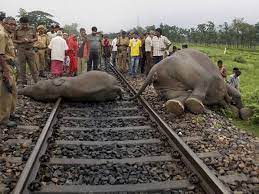
The Union Environment Ministry has constituted a “permanent” coordination committee that includes the Ministry of Railways and the Environment Ministry to prevent elephant deaths on railway tracks.
- 19 elephants were killed across the country on railway tracks in 2018-19, 14 in 2019-20 and 12 in 2020-21.
- Railway collisions were the second-largest reason for the unnatural deaths of elephants despite tracts being specifically demarcated and notified as elephant passages.
Key measures taken:
- Setting up of a Permanent Coordination Committee between the Ministry of Railways (Railway Board) and the MoEFCC for preventing elephant deaths in train accidents.
- Clearing of vegetation along railway tracks to enable clear view for loco pilots.
- Using signage boards at suitable points to alert loco pilots about elephant presence.
- Moderating slopes of elevated sections of railway tracks.
- Setting up underpass/overpass for safe passage of elephants.
- Regulation of train speed from sunset to sunrise in vulnerable stretches.
- Regular patrolling of vulnerable stretches of railway tracks by frontline staff of the Forest Department and wildlife watchers.
Yamunotsav : NMCG
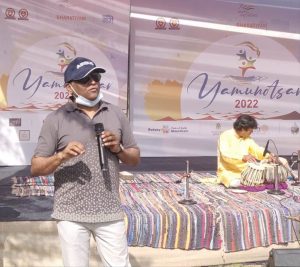
The Yamunotsav was organized by the National Mission for Clean Ganga (NMCG) as part of the Azadi Ka Amrit Mahotsav celebrations. This program was organized in collaboration with a group of NGOs.
- This event was organized at ASITA East River Front, ITO Bridge, New Delhi.
- This event was organized to celebrate River Yamuna’s glory and a pledge to keep it clean was announced.
- In this event the people were urged to join hands for cleaning the River Yamuna which is River Ganga’s most important and biggest tributary.
- The Namami Gange Programme which focuses on the Ganga Basin’s main stem is yielding positive results.
- The current target is the cleaning of the Yamuna River and ensuring that the 3 big sewage treatment plants (STP) that are being constructed are finished by December 2022.
- This will prevent all dirty water from the drains from falling into the River Yamuna.
- The funding of the sewerage infrastructure construction for River Yamuna amounts to Rs. 2300 crore is being funded by the NMCG.




